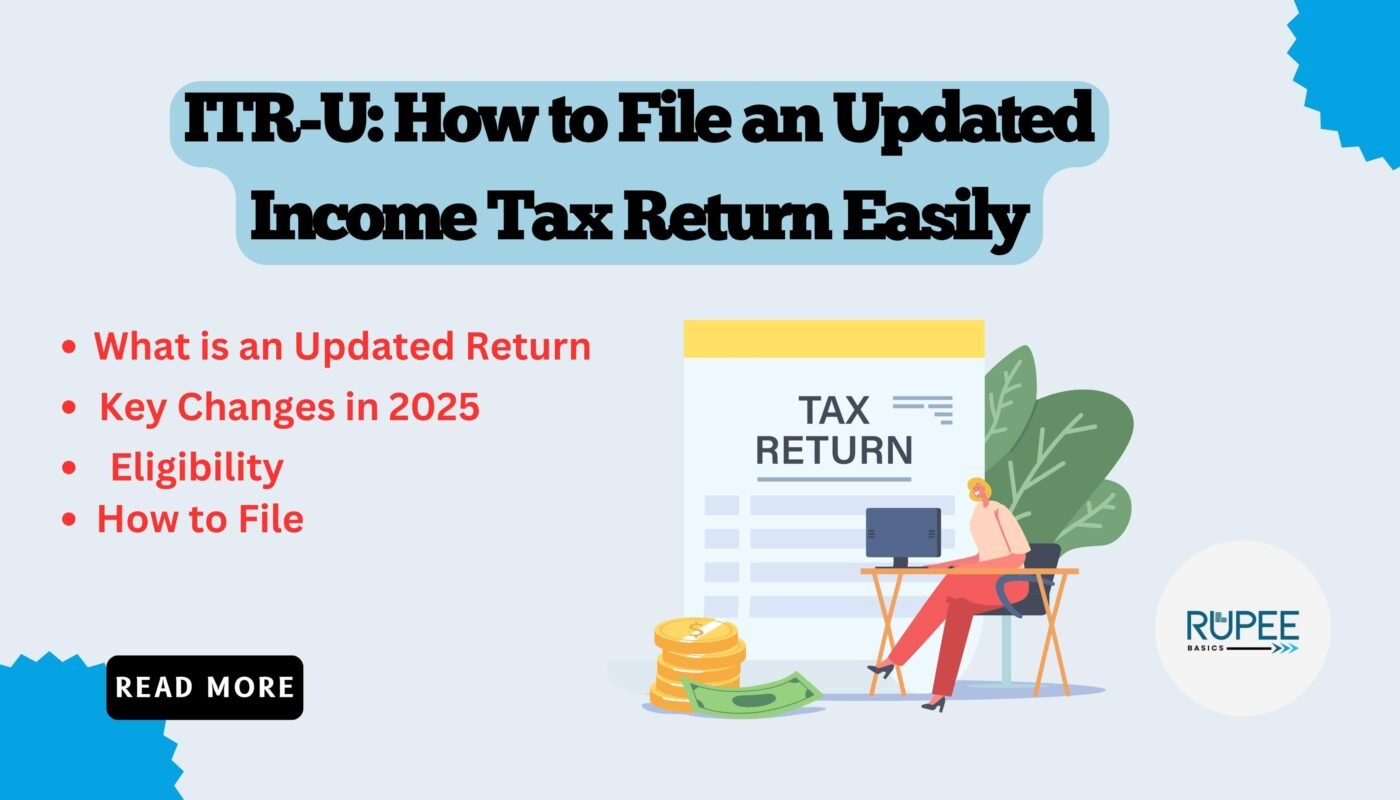Filing your Income Tax Return (ITR) accurately and on time is crucial to comply with tax regulations and avoid penalties. However, mistakes or omissions can occur. To address this, the Income Tax Department introduced the Updated Return (ITR-U), allowing taxpayers to rectify errors or include missed information in their tax returns. In the Union Budget 2025, significant changes were made to the ITR-U provisions, providing taxpayers with more flexibility and time. The Income Tax Department allows taxpayers to correct or file a late return using Updated Return (ITR-U). In this guide, we will explain everything about ITR-U in a simple way so that anyone can file an updated return hassle-free
What is an Updated Return (ITR-U)?
An Updated Return (ITR-U) is a form that enables taxpayers to update their previously filed ITRs. This facility is beneficial if you:
- Missed the original filing deadline.
- Omitted certain income details.
- Discovered errors in the filed return.
The primary purpose of ITR-U is to promote voluntary tax compliance by allowing taxpayers to correct their returns without facing severe repercussions.
Key Changes in ITR-U as per Budget 2025
The Union Budget 2025 introduced notable amendments to the ITR-U provisions:
- Extended Time Frame: Previously, taxpayers had 24 months from the end of the relevant assessment year to file an updated return. Budget 2025 has extended this period to 48 months, giving taxpayers more time to identify and rectify errors or omissions in their returns. citeturn0search3
- Additional Tax Payment Structure: Filing an updated return requires payment of an additional tax on the due amount. The revised structure is as follows:
- Within 12 months: 25% of the tax and interest due.
- Within 24 months: 50% of the tax and interest due.
- Within 36 months: 60% of the tax and interest due.
- Within 48 months: 70% of the tax and interest due.
Eligibility to File ITR-U
You can file an updated return if:
- You have previously filed an ITR but need to report additional income or correct errors.
- You missed the original or belated filing deadlines.
However, you cannot file ITR-U if:
- The updated return results in a refund or reduces your tax liability.
- The return pertains to assessment years older than four years from the current assessment year.
- The income involves undisclosed foreign assets or income.
- The updated return is filed during ongoing assessment or reassessment proceedings.
How to File an Updated Return (ITR-U)?
Follow these simple steps to file ITR-U online:
- Visit the Income Tax Portal – Go to www.incometax.gov.in.
- Login using your PAN and password.
- Select e-File → Income Tax Return → Choose ITR-U.
- Fill in the required details, including additional income.
- Pay the Additional Tax (if applicable) and attach the challan details.
- Verify & Submit – Use Aadhaar OTP, Net Banking, or DSC to e-verify the return.
Important Notes
- No Reduction in Tax Liability: ITR-U cannot be used to claim refunds or reduce the existing tax liability. It’s solely for declaring additional income and paying the requisite taxes.
- Multiple Filings: You can file only one updated return per assessment year. Ensure all omissions or errors are addressed in a single ITR-U filing.
- Maintain Documentation: Keep all relevant documents and proofs handy to support the information provided in the updated return, as they may be required for future reference or verification.
FAQs on ITR-U
1. Can I file ITR-U to claim a refund?
No, ITR-U is not intended for claiming refunds or reducing tax liabilities. It’s designed to declare additional income and pay the associated taxes.
2. What if I discover an error after filing ITR-U?
Once an updated return is filed for a particular assessment year, you cannot file another ITR-U for the same year. Ensure all corrections are made before submission.
3. Are there penalties for not filing ITR-U?
While there’s no direct penalty for not filing ITR-U, failing to report accurate income can lead to interest, penalties, or prosecution if discrepancies are discovered later by the tax authorities.
4. Can ITR-U be filed for any assessment year?
As per Budget 2025 provisions, ITR-U can be filed for returns up to four years prior to the current assessment year. For instance, if the current assessment year is 2025-26, you can file an updated return for assessment years 2021-22 onwards
“Failure is simply the opportunity to begin again, this time more intelligently.” – Henry Ford




